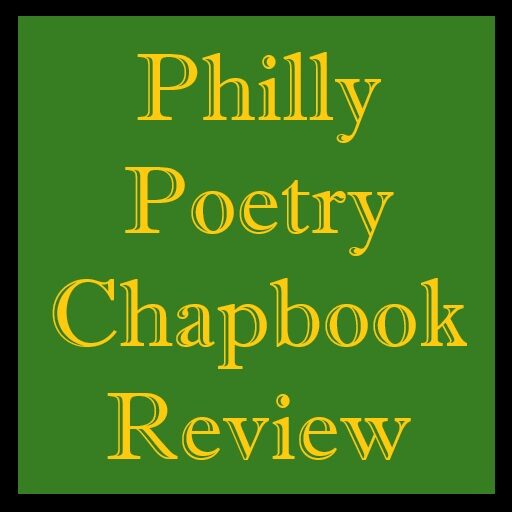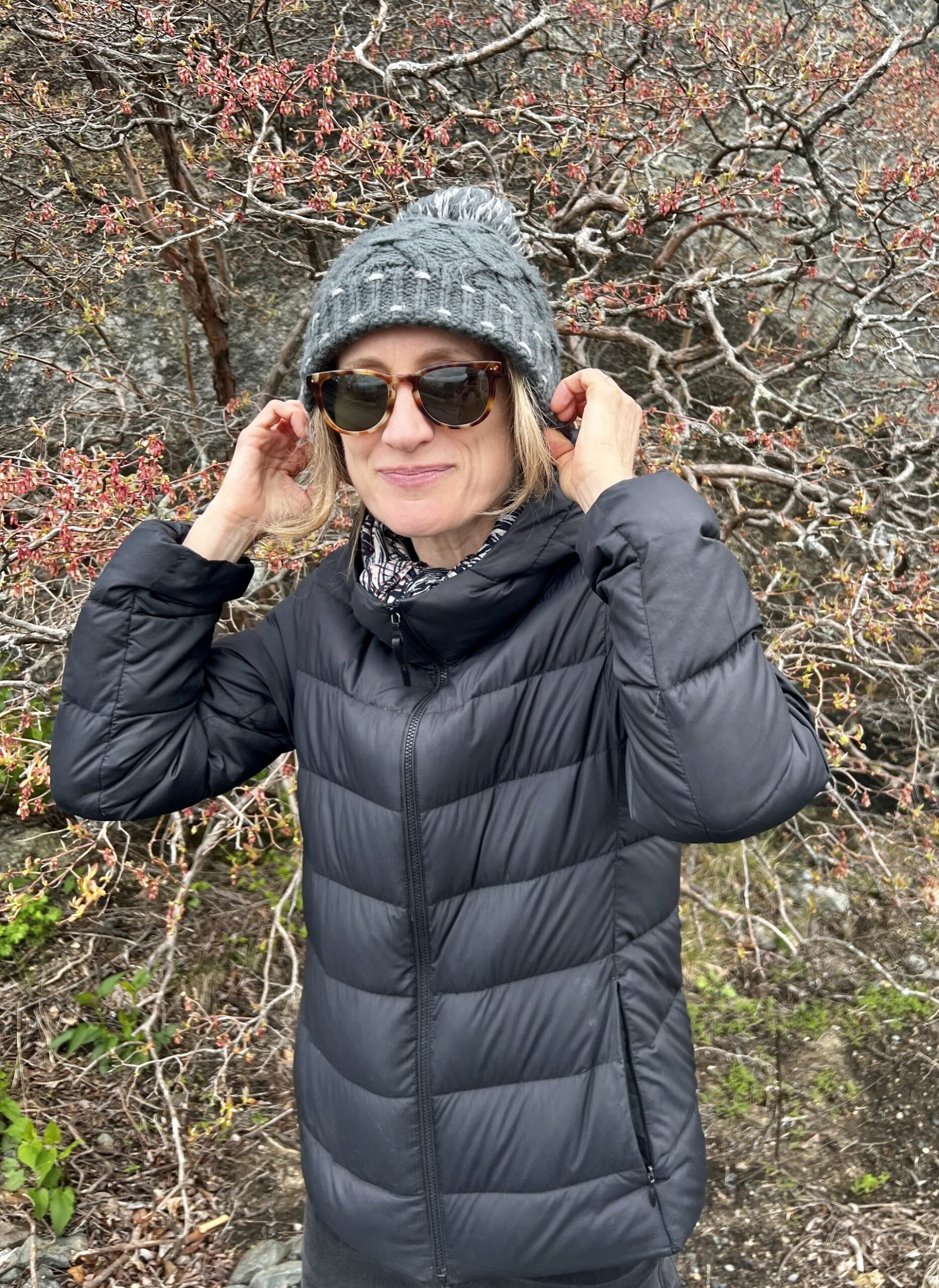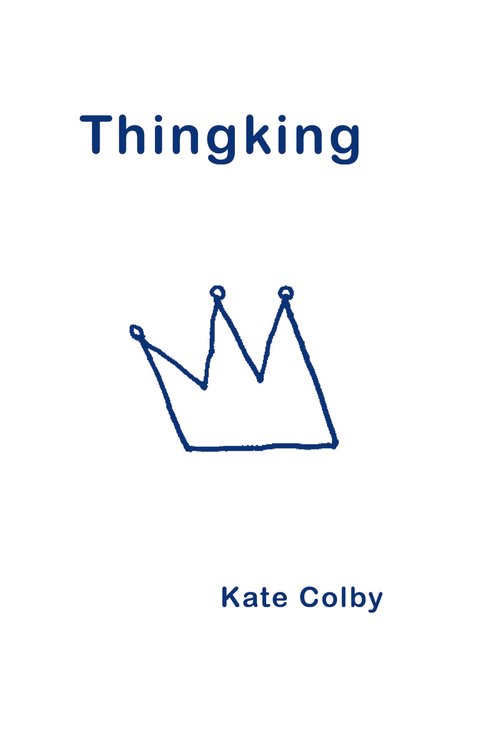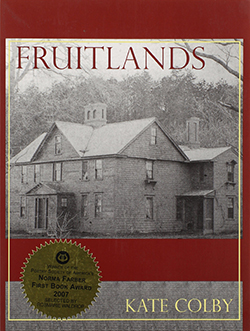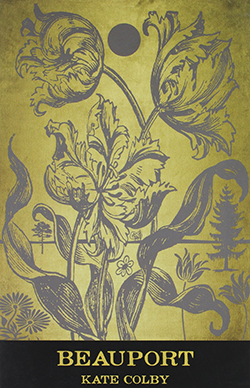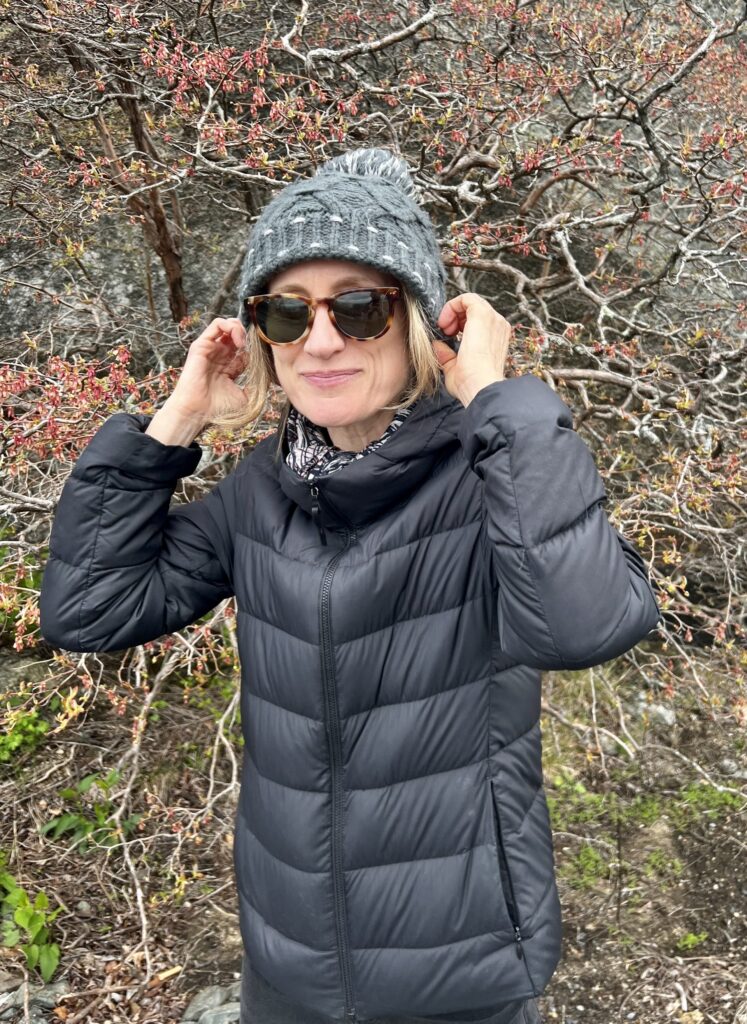Poet Kate Colby grew up in Massachusetts before earning her Bachelor’s degree from Wesleyan University and a Master’s in Fine Art from the California College of the Arts. Her full-length poetry collection, Fruitlands, was selected by Rosmarie Waldrop for the Norma Farber First Book Award. Beauport, her third full-length, was a finalist for Foreword Reviews’ Poetry Book of the Year Award, and Colby received a creative fellowship from the Woodberry Poetry Room at Harvard, among other honors.
I first met Colby in 2023 while participating in ModPo, the massive open online Modern and Contemporary American Poetry course offered by the University of Pennsylvania. I was completing it for the first time and getting the idea for this online poetry journal. Colby was one of the expert teaching assistants who helped facilitate conversation on message boards and weekly webcasts.
Unlike many poets who publish the obligatory chapbook-length work early in their careers and then move on, Thingking – released by Factory Hollow Press last May – marks Colby’s fifth chapbook. Her tenth full-length poetry collection is scheduled for release in Fall 2025.
Editor’s Note: The following collaborative interview was conducted by email in late 2024.
Aiden Hunt: Could you tell our readers a little about the inspiration for ThingKing?
Kate Colby: In fall of 2022, I wanted to coax myself out of my pandemic stupor and resume writing poems, but was having a hard time finding inspiration. I was poking around in a Philadelphia bookstore and found a copy of Primo Levi’s The Periodic Table, his memoir made up of short stories named for the elements, and thought a basic concept like that might help me.
I decided to write a poem for each of the 88 official constellations. I barely made it to 25 before I ran out of steam, but the impetus worked, and the poems in Thingking are the bulk of the result. Very much unlike Levi’s book, which concerns his experiences during the Holocaust, the poems in mine don’t concern much of anything at all, other than the difficulties of punching through the walls of language to see or say anything realer or truer than the limited human reality that words and our rules for using them reflect. With a few exceptions, the poems shed most of the star references, which were only there to get the wheels rolling.
How did you come up with the book’s title?
I can’t say where the title came from—it just occurred to me—but I do love it. I kind of wish I’d saved it for the full collection of which the Thingking poems are now a part! Many of the poems certainly have a William Carlos Williams-y thingness to them, which, now that I think of it, does jibe with the originary principle—small constellations of things for which I found or furnished the gravitational nougat holding them together.
And ThingKing received some award recognition, right?
The book was “Editor’s Choice” for the 2023 the Tomaž Šalamun Prize that is administered by the poet, editor, and Šalamun translator Brian Henry and published by Factory Hollow Press. I had been a finalist for the prize previously and was very happy to have been chosen this time by Brian. I should mention that my daughter Maggie drew the cover art, for which she was paid ten dollars.
Many poets only publish a chapbook to get some first work out there. While the period from 2008 to 2014 saw a break from them, Thingking marks your fifth chapbook in your two decades as a poet. Can you tell our readers what continues to draw you to the form?
Chapbooks are great when you have a smaller group of poems that go together. Poetry books keep getting bigger and bigger and the world is making it harder and harder to find time and space to read them! I much prefer a small book that invites sitting longer with each poem or piece of the contents. And handmade books suit the slow work of writing a poem. Now that social media is fragmenting and many poets are wandering away from it and its marketing pressures altogether, it would be nice to reorient around smaller books and more intimate public events (speaking to/for myself!).
You have your tenth full-length book coming next fall. Can you tell our readers, many of whom are poets earlier in their careers, a little about your writing process in general?
I can’t say much that is general about my writing habits and processes, but I have many times set a goal or written from artworks in order to get something started and keep it going. In Beauport I wrote poems based on Currier & Ives lithographs. In Reverse Engineer I have a series of poems with alternating first lines that I wrote from Richard Estes’ photorealist paintings. The poems in Return of the Native are titled after the chapters in Hardy’s novel. With I Mean I wrote successive statements beginning with “I Mean” until I ran out of steam.
I have been struggling to write for a while now. My methods are failing me! I have been trying to write about Edward Hopper’s painting Cape Cod Morning for almost five years. I started by trying to write a novel in response to it but quit after about 10,000 words because it was awful. I’ve thought about what I could do with those 10,000 words that would be fruitful or illuminating–cut it up and scramble it, perform some kind of erasure, write a poem from every third sentence, etc, etc. None of it is interesting, but the perspectival tensions of that painting obsess me and I will figure out some way to engage with or evince them eventually.
I expect that resistance to the current presidential administration and Congress will result in protest poems. Could you tell readers how you feel about protest poetry? Do you think it’s effective or is it a distraction? Do you think you’ll write any poems of that nature or is your more ekphrastic/art-influenced writing unaffected by political concerns?
I’m not interested in protest poetry, per se, but there seems to be a lot of it lately, so I assume people are reading it! I am interested in poetry that deals with language’s hierarchical structures and human-centric assumptions. I’m thinking about Rosmarie Waldrop’s “Shorter American Memory of the Declaration of Independence,” in which she N+7s all of the nouns: “We holler these trysts to be self-exiled that all manatees are credited equi-distant,” etc. It’s hilarious! She’s not saying anything political, but revealing the syntactic manipulations of that foundational American text and the degree to which they are ingrained in many of us who grew up with them. I don’t think younger generations necessarily do grow up with them anymore, though, so maybe using institutional language against itself is no longer so trenchant.
A curious thing about our political moment is that Trump is hardly a rhetorical genius–he’s not dazzling the public with his eloquence. I believe that most of his adherents don’t believe much of what he says at all and maybe even love him in part for all of his verbal drunken stumbling. So, where are the linguistic weak spots and sites of opportunity now? The work of being a poet is to find out.
Could you tell readers about what’s next for you?
Next fall I have a prose book called Paradoxx coming out with Essay Press. It combines elements of poetry, essay, literary and cultural criticism in a kind of memoir of my memory. It slops around in how language shapes consciousness and subjectivity and the differences between my self in the world and my self as I see it. It’s also about becoming an adult in the 1990s and the many onuses of being a mother. It sounds messy, and it was for a time, but I tightened it up so much that now it rhymes.
I don’t know what I will write next. For the first time in my writing life, I am not writing and it feels terrible. I’ve been feeling paralyzed by a variety of circumstances for a while now and am envious of those people who make themselves write every day—I can’t do it without the urge, but feel very dull without something to scratch at. I think I am starting to feel some itchiness to get back to it, though. I just need a new form to figure out how to fill.
Kate Colby’s books of poetry and prose include Reverse Engineer and Dream of the Trenches. Paradoxx is forthcoming from Essay Press in September. She has received awards and fellowships from the Poetry Society of America, Rhode Island State Council for the Arts, the Dodd Research Center at University of Connecticut, and the Woodberry Poetry Room at Harvard University. Her poems and essays have recently appeared in The Brooklyn Rail, Conjunctions, Harper’s, Lana Turner, LitHub and The Nation. She grew up in Massachusetts and currently lives in Providence, where she teaches at Brown and UPenn and performs with the ad hoc poets’ theater group, Spatulate Church Emergency Shift.

Contents
Book Excerpt: Further Thought by Rae Armantrout
Read the featured Excerpt Poem of the Month for January 2025, “Further Thought” from Go Figure by Rae Armantrout, along with a few words from the poet.
Read five poems by poet A.L. Nielsen, our first biweekly poet of the Winter 2025 issue, along with a few words about the poem “When We Walked”.
Chapbook Poem: The Poem as an Act of Betrayal by Benjamin S. Grossberg
Read the featured Chapbook Poem of the Month for January 2025, “The Poem as an Act of Betrayal” from As Are Right Fit by Benjamin S. Grossberg, along with a few words from the poet.
Jan. ‘25: Year One: What worked, what didn’t, and what to expect
Editor Aiden Hunt looks back at our first year and discusses changes to Philly Poetry Chapbook Review in 2025.
Three Poems by Shelli Rottschafer
Read three poems by poet Shelli Rottschafer, our second biweekly poet of the Winter 2025 issue, along with a few words about the poem “Because We Remember.”
Dancing With the Dead: On Ragnarök at the Father-Daughter Dance by Todd Dillard
“Todd Dillard successfully transgresses the unspoken cultural embargo on work that grapples with life during the COVID-19 pandemic in his new chapbook, Ragnarök at the Father-Daughter Dance.”
Read three poems by poet Wendell Hawken, our third biweekly poet of the Winter 2025 issue, along with a few words about the poem “First Hurt”.
Book Excerpt: Slow Chalk by Elaine Equi
Read the featured Excerpt Poem of the Month for February 2025, “Slow Chalk” from Out of the Blank by Elaine Equi, along with a few words from the poet.
Chapbook Poem: Caro M. by Angela Siew
Read the featured Chapbook Poem of the Month for February 2025, “Caro M.” from Coming Home by Angela Siew, along with a few words from the poet.
Read four poems by poet Natalie Marino, our fourth biweekly poet of the Winter 2025 issue.
A Conversation with Kate Colby
Poet Kate Colby discusses her latest chapbook, ThingKing, her creative writing practices, and her penchant for poetry chapbooks with PCR Editor Aiden Hunt in this interview piece.
Read three poems by poet Adele Ross, our fifth biweekly poet of the Winter 2025 issue, along with a few words about the poem “Heavy Water”.
Book Excerpt: The Self-Combed Woman by Laynie Browne
Read the featured Excerpt Poem of the Month for March 2025, “The Self-Combed Woman” from Apprentice to a Breathing Hand by Laynie Browne, along with a few words from the poet.
Chapbook Poem: To Let Go by Deirdre Garr Johns
Read the featured Chapbook Poem of the Month for March 2025, “To Let Go” from Fallen Love by Deirdre Garr Johns, along with a few words from the poet.
Read four poems by poet Sarena Tien, our sixth biweekly poet of the Winter 2025 issue, along with a few words about the poem “Mother Tongue”.
Life’s Lazy River Journey: On Tributaries by Aspen Everett
“A thread of adulation for matriarchal spirituality and the lifegiving value of water runs through the collection. Its first poem pays homage to [Toni] Morrison.” Read the full chapbook review by Shelli Rottschafer.
Three Poems by Jeanne Bamforth
Read three poems by poet Jeanne Bamforth, our seventh and final biweekly poet of the Winter 2025 issue, along with a few words about the poem “New Course”.
